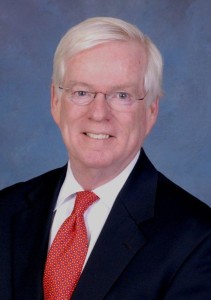A business depends on its employees to carry out its mission and an enthusiastic, trained worker adds much value to that business. The Office of Workforce Opportunity brings together the employer and the employee through a number of resources and in today’s 5 Questions, Michael Power, community outreach administrator, explains OWO and what it can do for your business.
1. The Office of Workforce Opportunity oversees the New Hampshire Works/American Job Center System. What programs/services are offered to NH professionals through NH Works and the American Job Center System?
The 12 NH Works Centers/American Job Centers located throughout New Hampshire offer a variety of services to both employers and job seekers, from job search techniques to digital job matching and career counseling to job training. Whether you’re an unemployed high-school dropout and a college-educated experienced professional who suddenly finds themselves out of work, NH Works can bring resources together to address your employment needs.
If you are a professional establishing a start-up, our partnership of state agencies and community-based organizations can help you with tax credits, training new workers, or obtaining the appropriate permits.
It’s important to remember that NH Works is not an agency, but a consortium of agencies, a team dedicated to bringing its resources to help strengthen New Hampshire’s economy. The partnership includes the Office of Workforce Opportunity in the Department of Resources and Economic Development; the Division of Economic Development, also in DRED; the Department of Education; NH Employment Security; Health and Human Resources; the Community College System of New Hampshire and the state’s Community Action agencies. We share our resources to address the needs of workers, job seekers and employers.
2. The vision of OWO is to “serve as a catalyst to establish a secure and sustainable workforce” and “provide a competitive advantage for New Hampshire businesses.” How does OWO fulfill that on a daily basis?
OWO is funded by the US Department of Labor Employment and Training Administration, with guidelines and restrictions on exactly how we utilize our funds. We have a State Workforce Investment Board, a kind of board of directors that oversee our operations and sets specific goals to address New Hampshire workforce needs. The SWIB is appointed by the governor and over half of its 40-membership must come from private industry. As a result, we’re industry-led when determining what targets we should have to establish a successful workforce in New Hampshire.
On a daily basis, that means working with industry to develop career pathways that will build sustainable pipelines for the workers needed by our industries, from hospitality to advanced manufacturing to healthcare. On the worker side, we assist job seekers, from youth to dislocated workers, to discover career paths that will enable them to be productive and contributing members of society – and that includes training funds to help them get the skills they need. We even fund youth programs to address at-risk students.
3. Why do you believe New Hampshire is a terrific place for people to work, live, and grow professionally?
First, quality of life. We’re the safest, healthiest place in America to live, especially for kids. Also, it has incredible natural resources. In addition, we’re small in terms of population, so it’s relatively easy to get to know the people you need to know in every sector of the economy. Our government officials are probably the most accessible in the nation. We’re frugal, so in both our government and private industry, we know how to stretch a buck, with very little waste. We have an entrepreneurial spirit, so there is creativity and a willingness to take a risk without fear of failing. We actually know our neighbors. We have a terrific educational system, especially at the community college level, where we really shine. There is room to succeed in New Hampshire if you dare to be great at whatever you want to do. That’s why the Stay Work Play organization is so important to New Hampshire.
4. Can you share a brief story or two about how OWO helps businesses in the state?
Employers can get confused when they run up against regulations and statutes and rules they are not familiar dealing with their business, and OWO, with its partners in the NH Works system, can stop the bureaucratic runaround of never-ending phone calls and unanswered emails. Because we really depend on a customer-friendly approach, we can find the answer, or locate the appropriate official to help address a business’s question.
In addition, we can walk through programs that the business has likely not heard about – like the Return to Work program that allows an employer to try out a perspective employee for free (even worker compensation costs), or the On-the-Job training program that can cover a significant amount of a new employee in training’s salary.
In short, personalized service that is unheard of in other states. We also administer the $1 million dollar Job Training Fund, a 1:1 matching fund to upgrade worker skills. The Job Training Fund has helped offer training to 25,000 workers in the past decade, generating nearly $20 million in new training programs. And….it’s user-friendly.
5. What’s new or exciting coming up on the horizon for OWO?
Under the Workforce Innovation and Opportunities Act, the new federal legislation under which we are working, we’re initiating new sector strategies, a program that places all the stakeholders of important industry sectors together at the table to discuss and design practices and programs that will create sustainable pipelines of new workers for that industry.
When we find ourselves in a labor shortage in particular industries, like manufacturing, and it does no good for companies to merely steal workers from each other. We need to collaborate with industry leaders, educational facilities, workforce agencies and others in the community to design long-lasting career pathways that help bring more people into the middle class while providing our employers with the opportunity to grow.










